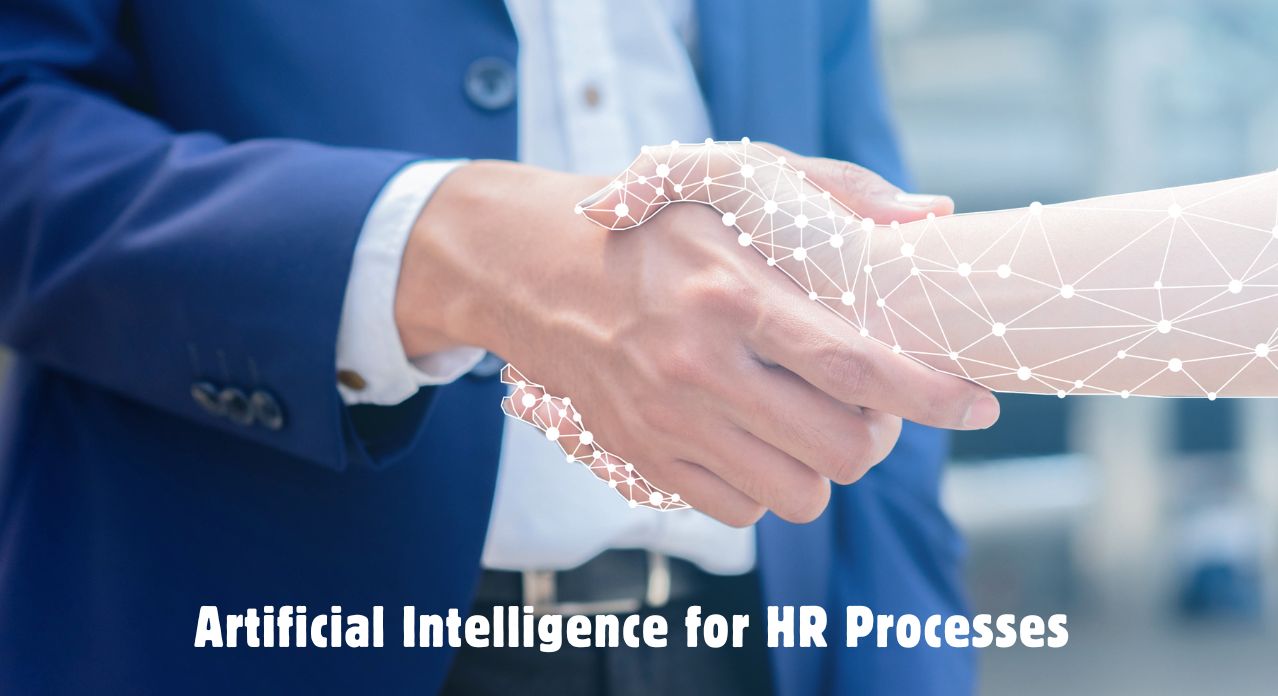As an HR leader, I’ve seen the landscape of human resources evolve dramatically over the last few years, with AI (Artificial Intelligence) being one of the most transformative forces driving this change. AI in HR is no longer a futuristic concept; it is here, reshaping everything from talent acquisition to employee engagement. While AI offers significant opportunities, it also presents challenges that HR leaders must navigate with careful consideration.
Benefits of using AI in HR
1. Streamlined Recruitment Process
One of the most immediate impacts of AI is seen in recruitment. AI-powered tools can sift through thousands of resumes, identify the best candidates based on preset criteria, and even handle the initial stages of the interview process. This dramatically reduces the time to hire and ensures that recruiters focus their attention on more critical tasks like interviews and candidate engagement.
2. Improved Employee Experience
AI-driven chatbots and virtual assistants are enhancing employee experiences by providing instant answers to HR-related queries. From answering questions about benefits to assisting in onboarding, AI-powered solutions are reducing the load on HR teams while giving employees the real-time support they need.
3. Data-Driven Decision Making
AI analytics tools can track employee performance, predict turnover rates, and identify potential skill gaps within teams. These data-driven insights allow HR leaders to make more informed, proactive decisions. For example, AI might alert a manager to an employee’s declining engagement based on subtle behavioral changes, allowing for timely intervention.
4. Bias Reduction
AI has the potential to reduce unconscious bias in hiring by removing human judgment from the early stages of recruitment. By relying on algorithms that assess candidates based on data points rather than subjective opinions, organizations can foster more diverse and inclusive workplaces.
The Challenges of using AI in HR
1. Potential for Algorithmic Bias
While AI can reduce human bias, it’s essential to remember that algorithms are only as good as the data they’re trained on. If past hiring data is biased, the AI system may perpetuate that bias. For instance, if an AI tool is trained on historical data that underrepresents women in leadership roles, it may continue to recommend fewer female candidates for those positions.
2. Lack of Human Touch
In an industry built on relationships, AI can sometimes feel impersonal. Employees and candidates may feel alienated by a fully automated process, especially during sensitive moments like layoffs, performance reviews, or conflict resolution. The human touch is irreplaceable in certain HR scenarios, and an over-reliance on AI may undermine trust and empathy within the organization.
3. Security and Privacy Concerns
AI systems deal with large volumes of employee data, including personal information, performance metrics, and feedback. Without strong data security measures, there is a risk of data breaches that could compromise employee privacy. HR leaders need to ensure that AI tools comply with data protection laws like GDPR or CCPA to safeguard sensitive information.
Best Practices for Using AI in HR
1. Combine AI with Human Insight
AI should augment, not replace, human judgment. Use AI to handle repetitive tasks and data analysis, but ensure that HR professionals are involved in decision-making processes that require empathy, context, and ethical considerations. In recruitment, for example, while AI can filter resumes, human interviews should remain a key part of the process to assess cultural fit and soft skills.
2. Regularly Audit AI Tools
Ensure that your AI tools are functioning as intended by conducting regular audits of their performance and decision-making processes. Look for signs of bias, and continuously update algorithms with diverse data sets to minimize the risk of unintentional discrimination.
3. Focus on Transparency and Training
Employees should be made aware of how AI is being used in HR processes and how it impacts them. Transparency builds trust. Additionally, HR teams should receive training on how to interpret AI data and use AI tools effectively, ensuring they are equipped to work alongside technology.
4. Prioritize Data Security
With AI handling sensitive information, implementing strong cybersecurity protocols is non-negotiable. Collaborate with your IT department to ensure all AI systems comply with industry standards and regulations to protect employee data.
5. Maintain Flexibility
AI is evolving rapidly. What works today might not work tomorrow, so maintain flexibility in your HR strategy. Be prepared to adapt and evolve your AI use as new tools emerge and your organization’s needs change.
Conclusion: Balancing AI with Human-Centric HR
The impact of AI on HR is undeniable, offering efficiency, data-driven insights, and the potential to revolutionize the way we manage talent. However, it’s important to approach AI with caution. The key is striking a balance between embracing technological advancements and retaining the human-centric focus that lies at the heart of HR.
As HR leaders, we must be strategic in how we implement AI, ensuring that we empower both our employees and our HR teams while protecting against risks. When done right, AI can elevate HR to new heights—creating a more dynamic, responsive, and inclusive workplace.
Contact us to empower your team and elevate your workplace. Let’s shape the future of HR!
